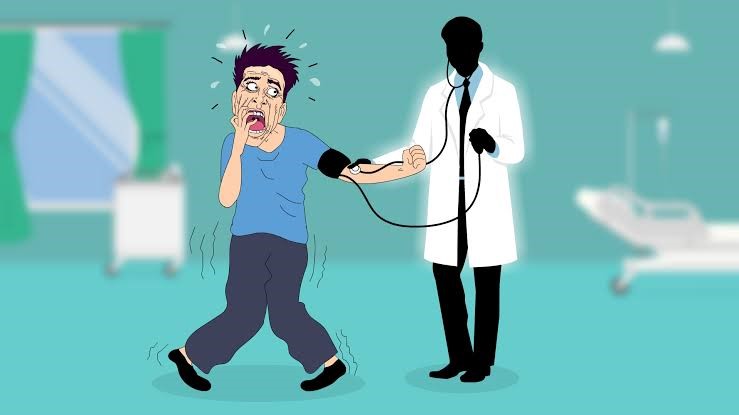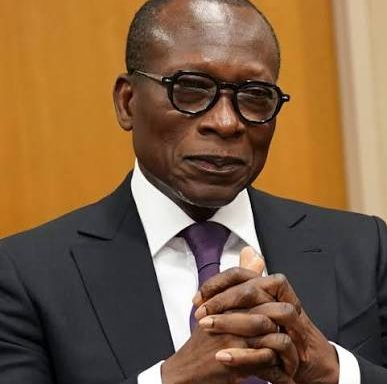High blood pressure, also known as hypertension, is a leading cause of heart disease, stroke, and kidney failure across Africa. It poses a significant threat to the health and well-being of millions. The World Health Organization (WHO) reports that nearly 30% of adults in Africa are affected by hypertension, with numbers expected to rise.
What is High Blood Pressure?
High blood pressure occurs when the force of blood against the artery walls is consistently too high. This condition can damage the arteries and lead to serious health problems. Blood pressure is measured in millimeters of mercury (mm Hg) and recorded with two numbers: systolic pressure (the first number: measures the pressure in the arteries while the heart is beating) and diastolic pressure (the second number: measures the pressure in the arteries while the heart is resting between beats). A normal blood pressure reading is below 120/80 mm Hg.
Join our WhatsApp Channel
Causes of High Blood Pressure
Several factors contribute to high blood pressure, including:
Genetic Factors: A family history of hypertension can increase the risk.
Lifestyle Choices: Poor diet, lack of physical activity, and excessive alcohol consumption are significant contributors.
Obesity: Excess weight can strain the heart and arteries.
Stress: Chronic stress can lead to temporary increases in blood pressure.
Smoking: Tobacco use immediately raises blood pressure and damages the artery walls.
Age: The risk of hypertension increases with age.
Underlying Health Conditions:
Conditions such as diabetes and kidney disease can contribute to high blood pressure.
Symptoms of High Blood Pressure
High blood pressure is often called the “silent killer” because it usually has no noticeable symptoms until serious health problems occur. When symptoms do appear, they may include:
- Severe headaches
- Fatigue or confusion
- Vision problems
- Chest pain
- Difficulty breathing
- Irregular heartbeat
- Blood in the urine
Treatments for High Blood Pressure
Managing high blood pressure involves a combination of lifestyle changes and medications. Key treatments include:
Lifestyle Changes:
Healthy Diet: Consuming a diet low in salt, saturated fats, and cholesterol.
Regular Exercise: Engaging in physical activities such as walking, jogging, or swimming.
Weight Management: Maintaining a healthy weight to reduce strain on the heart.
Limiting Alcohol: Reducing alcohol intake to lower blood pressure.
Quitting Smoking: Eliminating tobacco use to improve overall cardiovascular health.
READ ALSO: Questions To Ask Your Doctor When He Says You Have High Blood Pressure
Medications:
Diuretics: Help reduce excess water and sodium in the body.
Beta-blockers: Reduce the heart rate and the heart’s output of blood.
ACE Inhibitors: Relax blood vessels by blocking the formation of a natural chemical that narrows blood vessels.
Calcium Channel Blockers: Prevent calcium from entering heart and blood vessel muscle cells, causing them to relax.
The Hypertension Epidemic in Africa
Africa’s hypertension crisis is driven by a combination of urbanization, lifestyle changes, and limited healthcare access. The shift towards processed foods high in salt and fat, reduced physical activity, and increased obesity rates are major contributors. Additionally, many Africans have limited access to healthcare services, leading to undiagnosed and untreated cases of hypertension.
Uncontrolled hypertension can lead to severe health complications, including heart attacks, strokes, and kidney failure. The economic burden is substantial, with high treatment costs and loss of productivity due to illness and premature death.
International health organizations, local governments, and non-profits are collaborating to address this public health crisis. Efforts include funding for healthcare improvements, educational programs, and policy changes to support healthier lifestyles.
Prevention of High Blood Pressure
Preventing high blood pressure involves adopting a healthy lifestyle early on. Key prevention strategies include:
Eating a Balanced Diet: Focus on fruits, vegetables, whole grains, and lean proteins.
Regular Physical Activity: Aim for at least 30 minutes of moderate exercise most days of the week.
Maintaining a Healthy Weight: Keep body weight within the recommended range for your height and age.
Managing Stress: Practice relaxation techniques such as meditation, yoga, or deep breathing exercises.
Limiting Salt Intake: Avoid high-sodium foods and reduce salt added during cooking.
Regular Health Check-Ups: Monitor blood pressure regularly to detect any changes early.
Addressing the high blood pressure epidemic in Africa requires immediate and sustained efforts. By promoting awareness, improving healthcare access, and encouraging healthy lifestyle choices, African nations can significantly reduce the prevalence and impact of hypertension.















